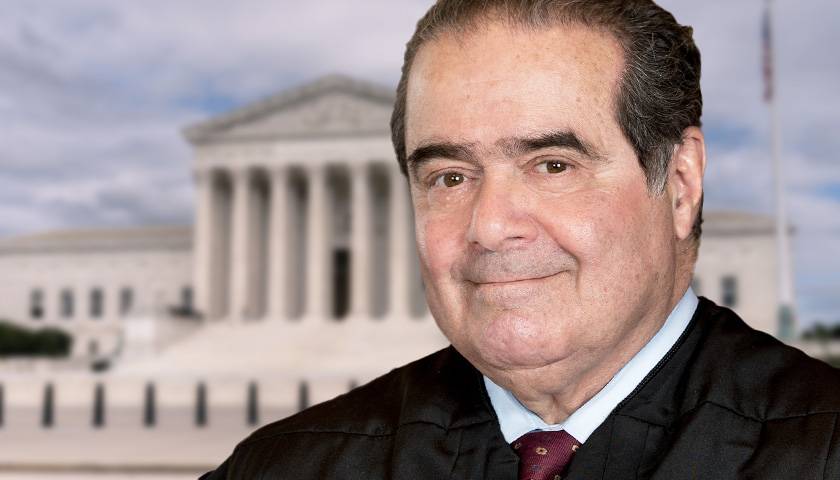by Katelynn Richardson
Antonin Scalia was a budding textualist long before he transformed the Supreme Court, and the nation, with his unique legal approach, a new biography of his early life reveals.
In the 1950s, the future Supreme Court Justice spent his mornings on the New York subway, commuting with his rifle to Xavier High School, a hybrid Jesuit-run Catholic school and military academy in Manhattan. His teacher’s response one day to a student’s sarcastic comment about “Hamlet” became a moment Scalia would never forget — and would refer to for the rest of his life as the Shakespeare Principle: “Mistah, when you read Shakespeah, Shakespeah’s not on trial; you ah,” Father Thomas Matthews said.
In his new book, “Scalia: Rise to Greatness, 1936 to 1986,” journalist James Rosen describes how this moment, among many others, reinforced Scalia’s already strong inclination to venerate text, a habit ingrained in him by his mother, a grammar school teacher; his father, a professor of romance languages; and his strong Catholic upbringing, a regular immersion into handling immutable, sacred writings. In 514 pages of energetic prose, Rosen paints a vibrant portrait of Scalia, tracing through meticulous research how the kid from Queens became “one of the most important Americans in the last 100 years.”
“Justice Scalia’s central innovation in how judges go about their business was to insist that when they interpret the Constitution and various statutes enacted since then, judges and justices should adhere to the original meaning of those provisions and those laws,” Rosen told the Daily Caller News Foundation. “If you want to account for modern phenomena that the founders couldn’t envision, the correct place to do that was not the courts, but the legislature.”
Rosen makes excellent use of a wealth of source material, including a previously sealed oral history Scalia conducted in the Supreme Court chambers and some of his previously unpublished official correspondence. He supplements these materials with interviews he conducted with Scalia’s children, friends, former colleagues, students and neighbors.
Rosen frequently contrasts his own biography with the others that came before it, highlighting information that has been previously unreported. “This book is the first accurate biography of Antonin Scalia because it is the first admiring one,” he told the DCNF.
Despite the richness of detail contained in the first of Rosen’s two books on Scalia’s eventful life, the narrative never drags. Echoes of Scalia’s wit and humor, amplified by Rosen’s storytelling and ability to draw out the significance of key influences, put the reader right in the room as Scalia advances through various stages of his early life and career.
The timeline begins with “Little Nino” growing up as the child of immigrant parents and ends with his confirmation to the Supreme Court, where Rosen’s second book will pick up. In between, it recounts his time as a high school television phenomenon, Georgetown college debate champion, official in the Nixon and Ford administrations, law professor at the University of Chicago and Stanford, American Enterprise Institute scholar and D.C. Circuit Court judge.
Beyond his legacy as a brilliant legal scholar, Rosen’s book shows Scalia as a devoted Catholic, father and friend. Though intensely focused in his work and content with nothing less than perfection, he was a man widely regarded, loved by those who knew him for his playful, self-deprecating sense of humor and the genuine interest he took in others.
Rosen says his personal acquaintance with Justice Scalia, which began with his request for an interview as a young reporter just arriving in D.C. and developed into a two-year-long correspondence, is what motivated him to write the book.
“We also had lunch a couple times, one-on-one,” Rosen recalled. “The Justice made me eat off his plate. … So there I was, shoveling vegetables from Justice Scalia’s plate into my mouth.”
“He was very generous to a young reporter all those years ago,” Rosen said. He anticipates the second part of his biography, which he is currently writing, will be finished in 2025.
– – –
Katelynn Richardson is a reporter at Daily Caller News Foundation.
Photo “Antonin Scalia” by Collection of the Supreme Court of the United States. Background Photo “U.S. Supreme Court” by Adam Szuscik.




